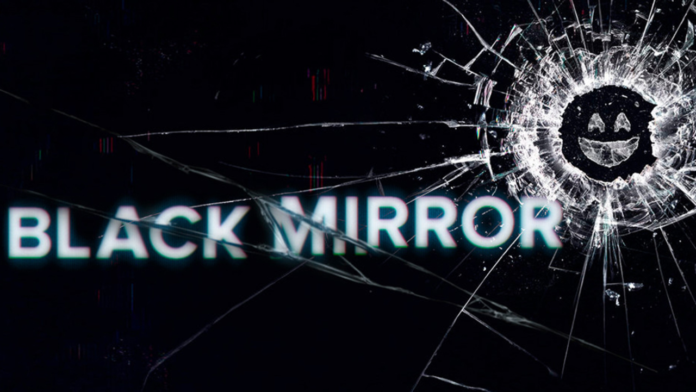The fourth season of Black Mirror, a British sci-fi anthology series which Netflix picked up in 2015, is about as topical and buzzwordy as it is poignant. Therein lies my hesitancy to extoll its virtues or damn its shortcomings. The series takes after mystery-of-the-week trailblazers such as The Twilight Zone and The X-Files in its format, but instead of interconnected, overarching plotlines, Black Mirror focuses on individual stories, each told within the span of one episode.
Like most anthologies, Black Mirror taps into a recurring theme: The implications of humanity’s ever-increasing love-affair with technology. Touching on everything from augmented and virtual reality to society’s preoccupation with social media, the series attempts to give viewers a dose of healthy cynicism when it comes to the many benefits we’re told technology has in store for us. Kind of like a cranky grandparent, Black Mirror scolds us: It’s all because of those damn smartphones!
Previous seasons have given viewers the impression that, underneath the damned if you do, damned if you don’t attitude the show holds towards technological integration, there is still a correct choice to be made (even if that choice is hinted at with all the subtlety of a pizza chef using a steamroller to flatten out pizza dough).
Black Mirror doesn’t lack for great performances. Rosemarie DeWitt’s portrayal of an overbearing mother who turns to technology in order to keep tabs on her young daughter in “Arkangel,” the series’ second episode, is committed and impressive. The plot, poignant and timely, manages to hold viewers’ attention throughout, but there’s rarely a moment where we don’t feel a nagging voice, like a paranoid grandparent, telling us: “Be afraid! Technology is out to get you!”
For the most part, each episode does a stupendous job of relaying the thrill of technology-gone-haywire, and it’s during the episodes which confine their stories to exploring this specific structure that the show pays off. However, every now and then Black Mirror feels the need to wax philosophic about artificial intelligence, or surveillance. The argument here isn’t that these cautionary tales are unwarranted, or even that they are bad, but that they are already so prevalent in our society that, despite its best efforts, Black Mirror does nothing else but underline its own desperation to be timely. Compared to other weekly cautionary tales like The Twilight Zone, I don’t foresee Black Mirror retaining its spark years down the road. This is mostly due, I believe, to the fact that episodes attempt to capitalize on the conversations about technology that are already taking place within public forums. Black Mirror doesn’t start any conversation, it simply hijacks those which are already taking place, and mines them for drama.
The stories are thrilling, yes, but they get stale soon. So long as you’re fine with that, Black Mirror ought to appeal to any fan of socially-critical speculative sci-fi.


